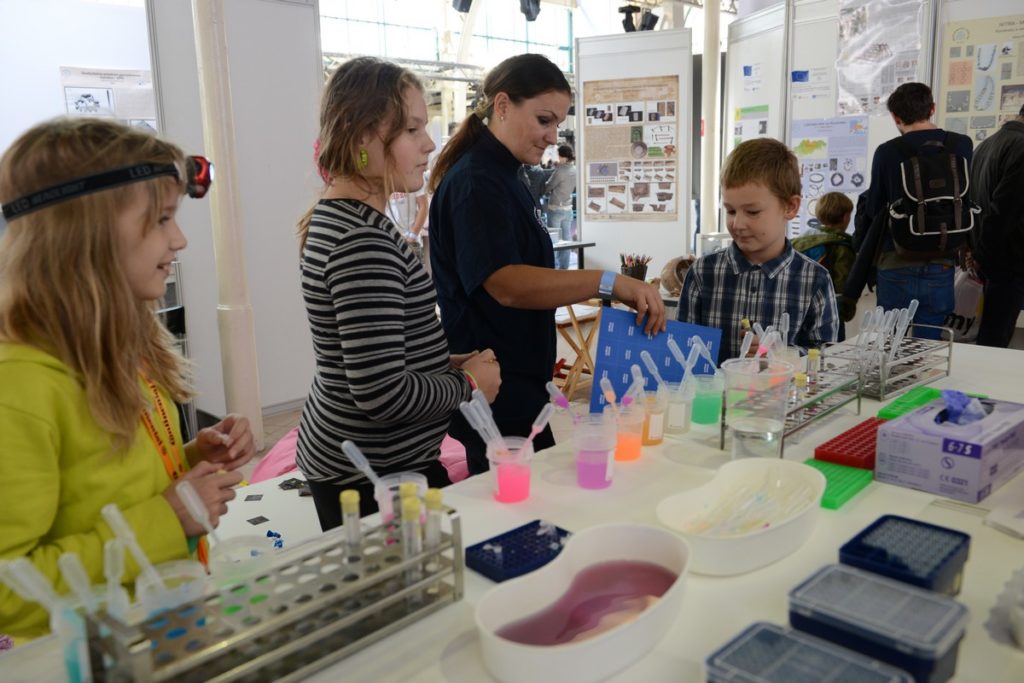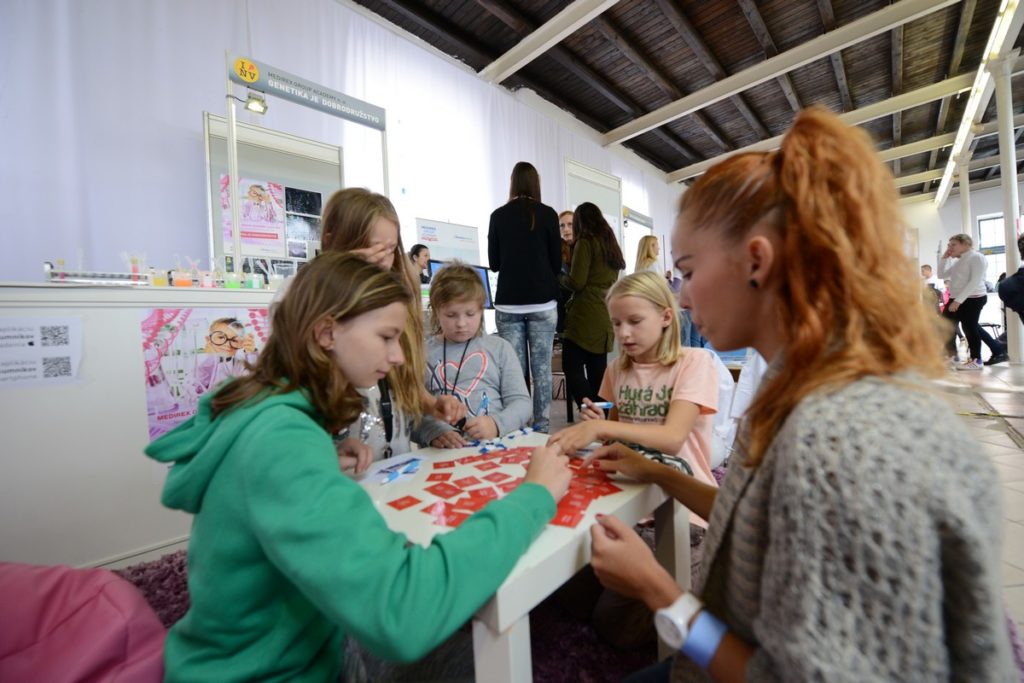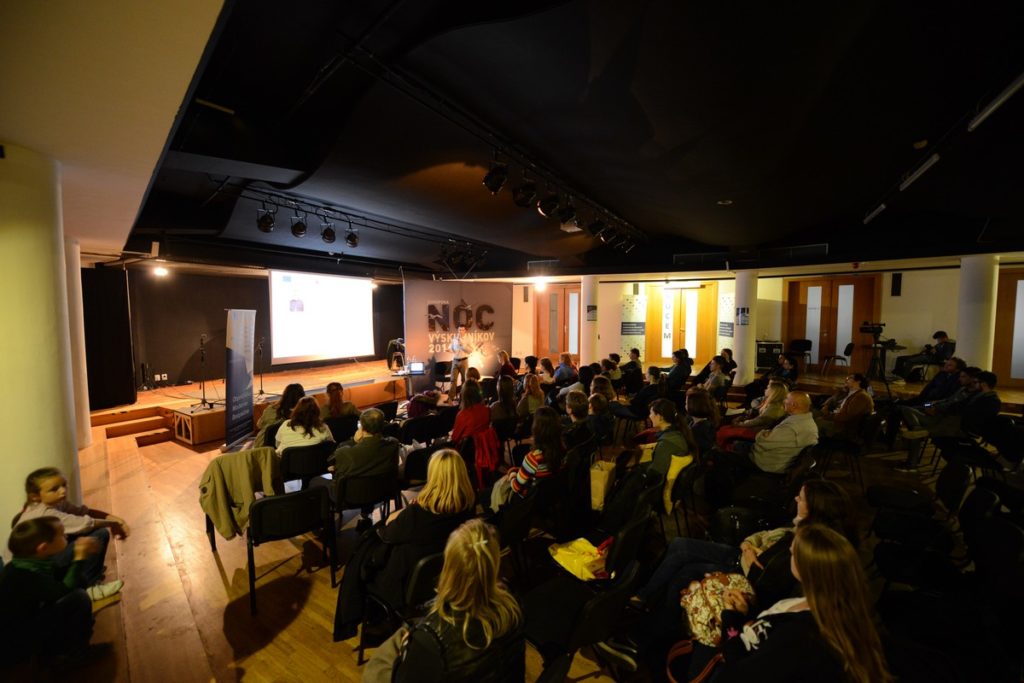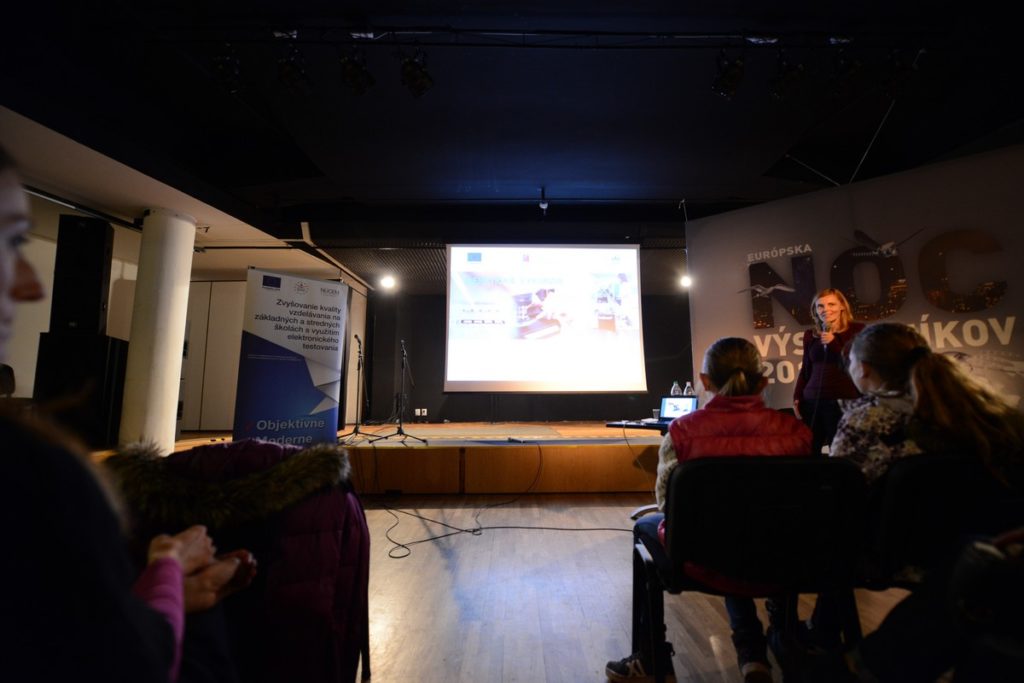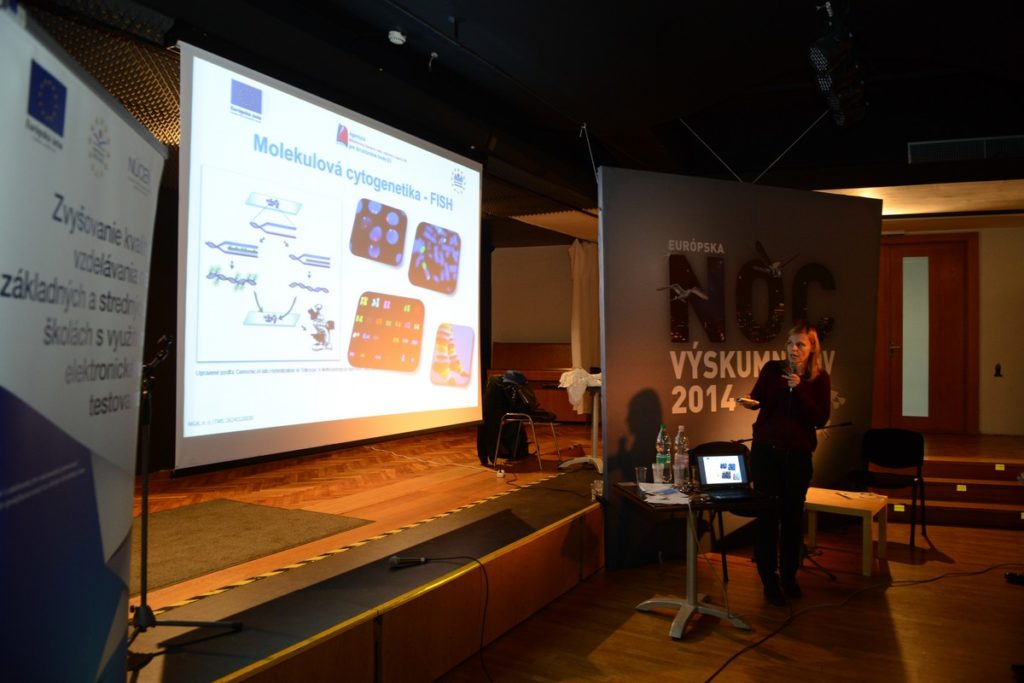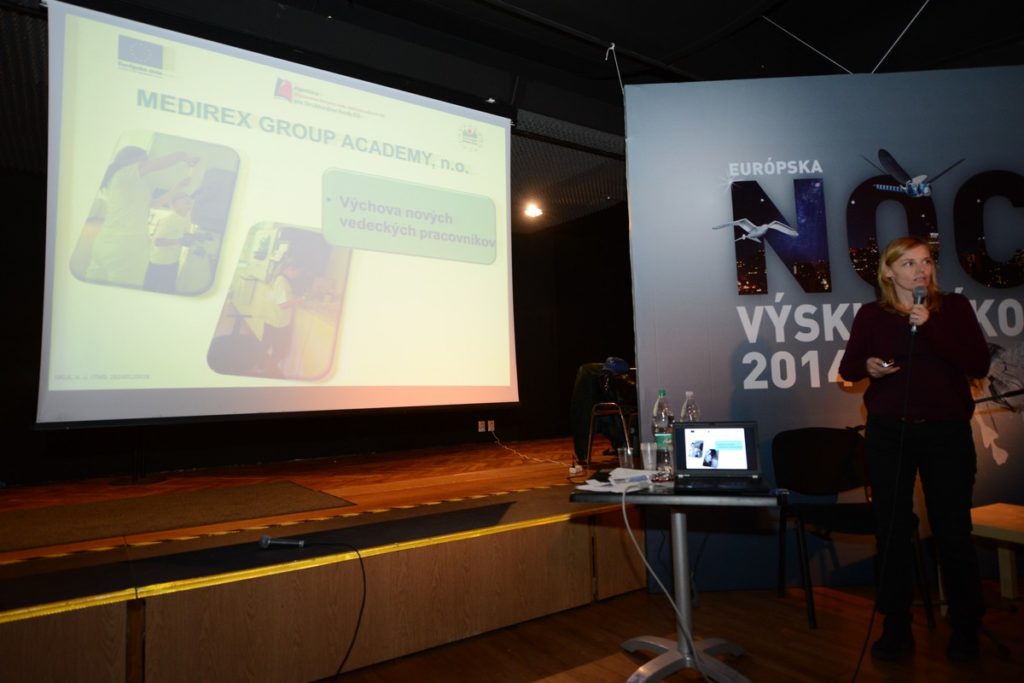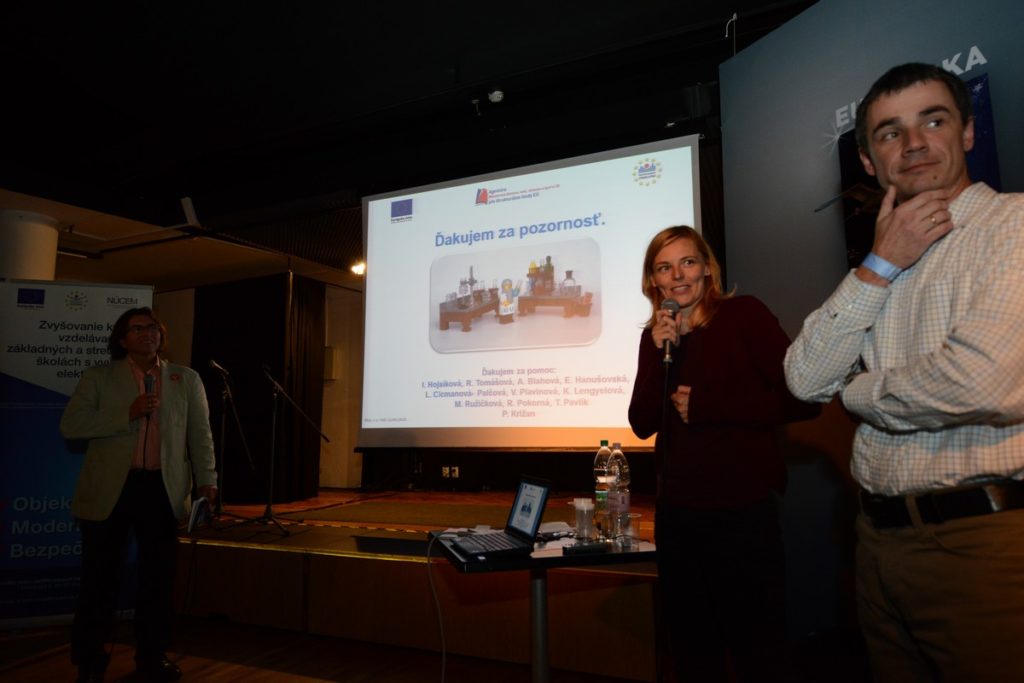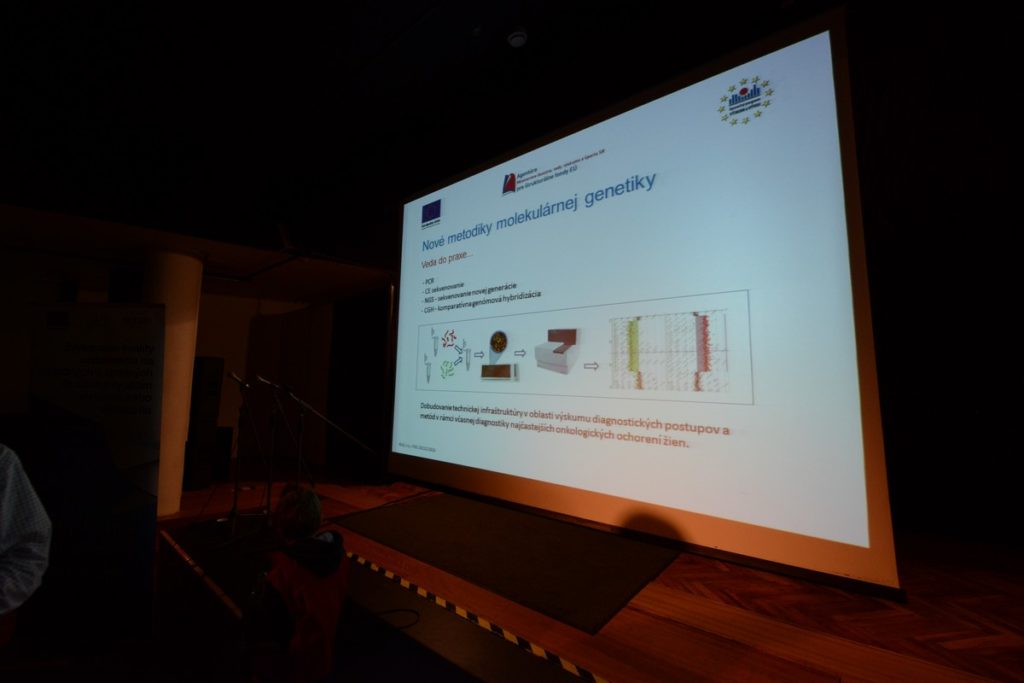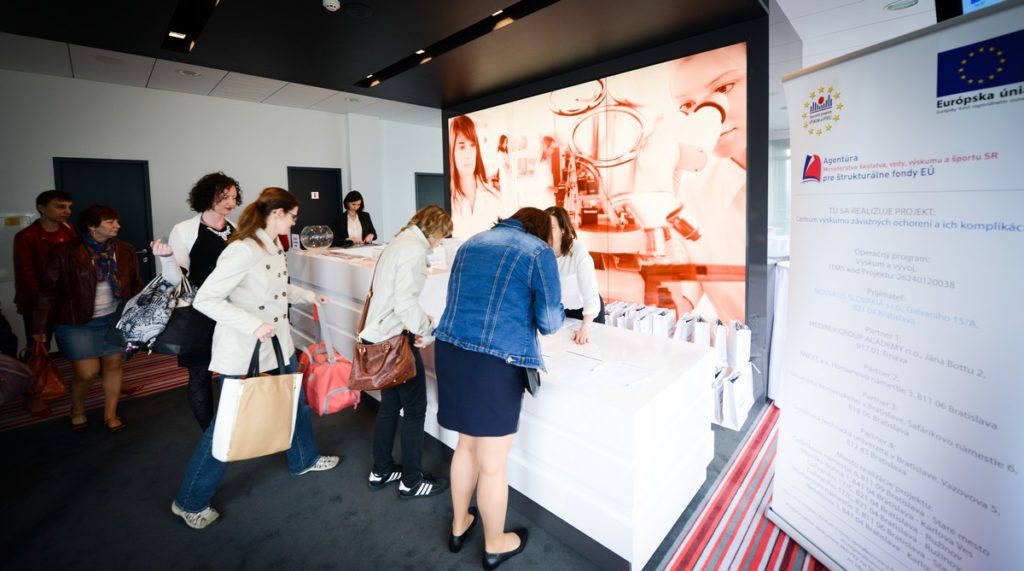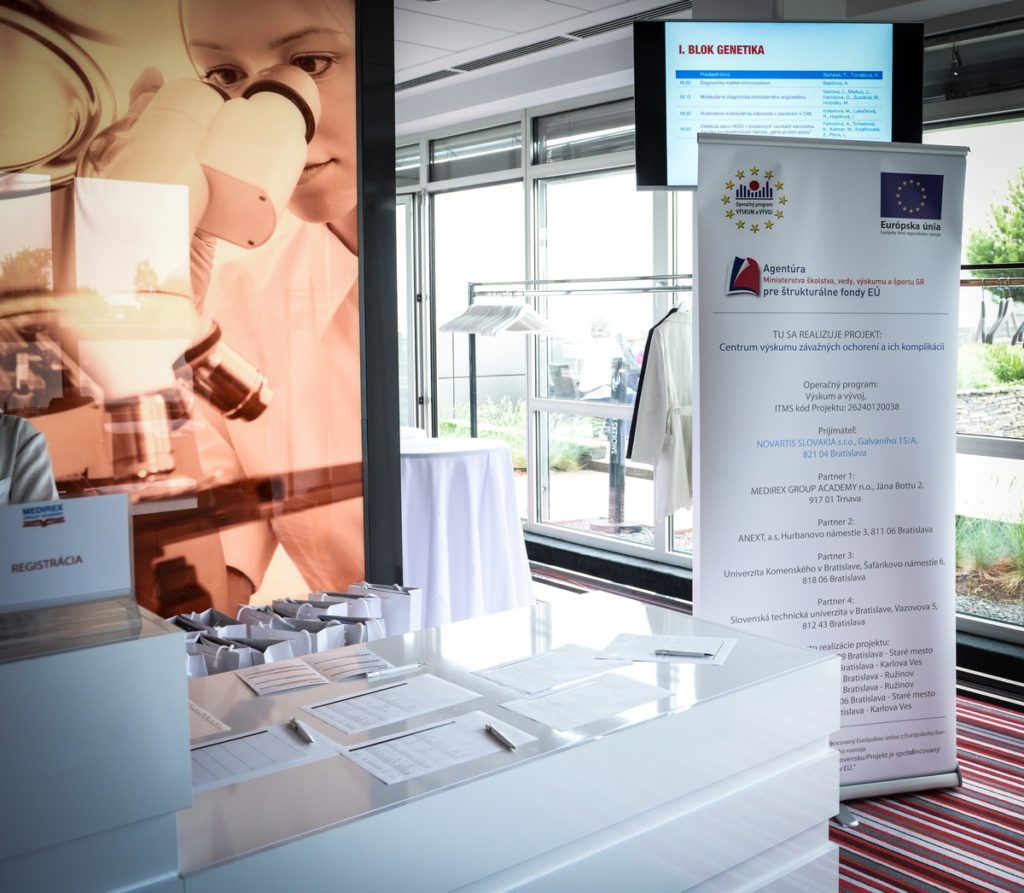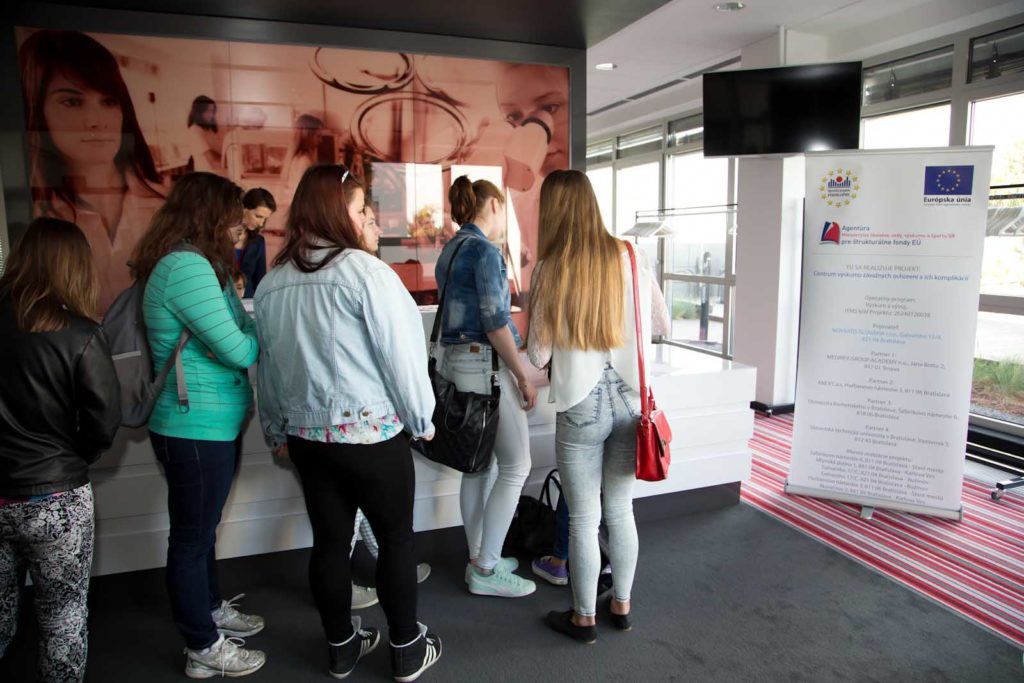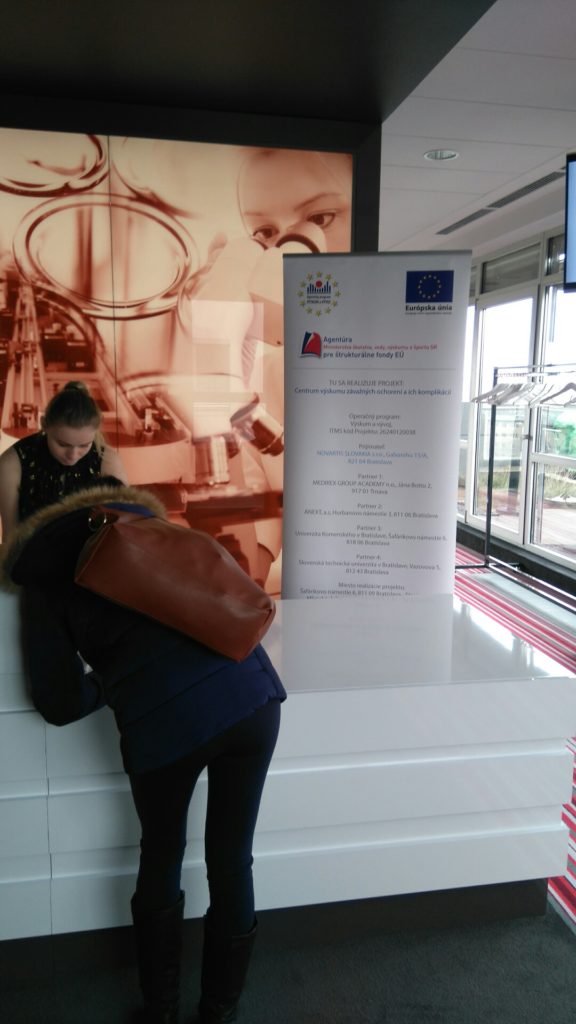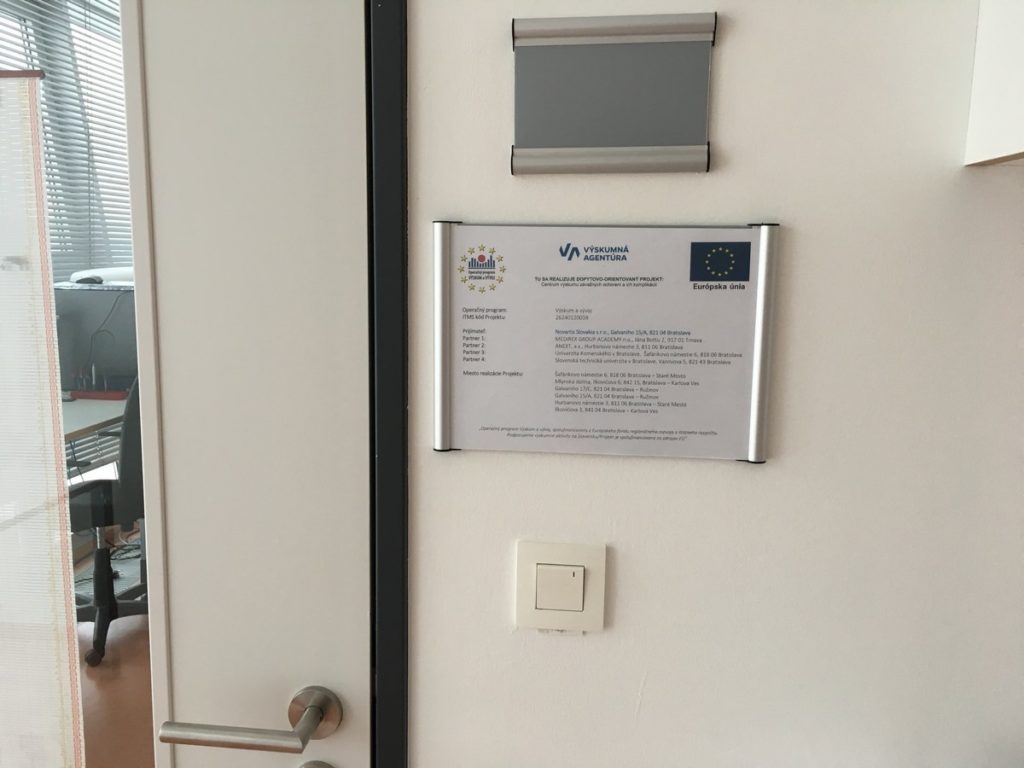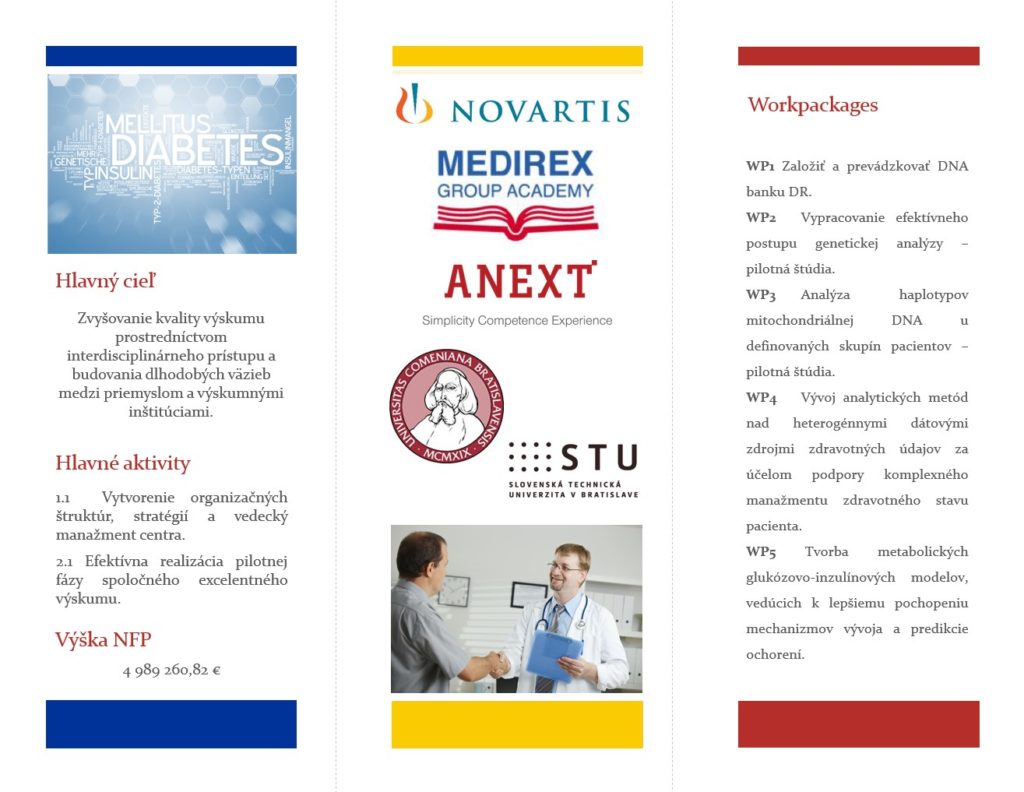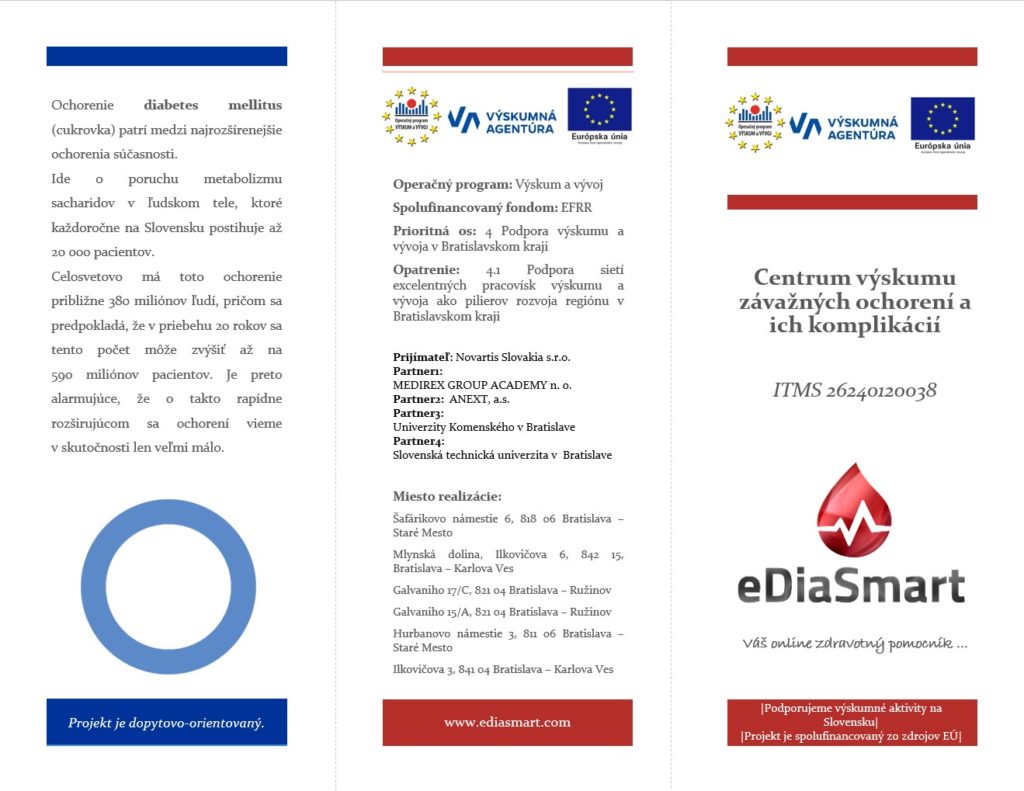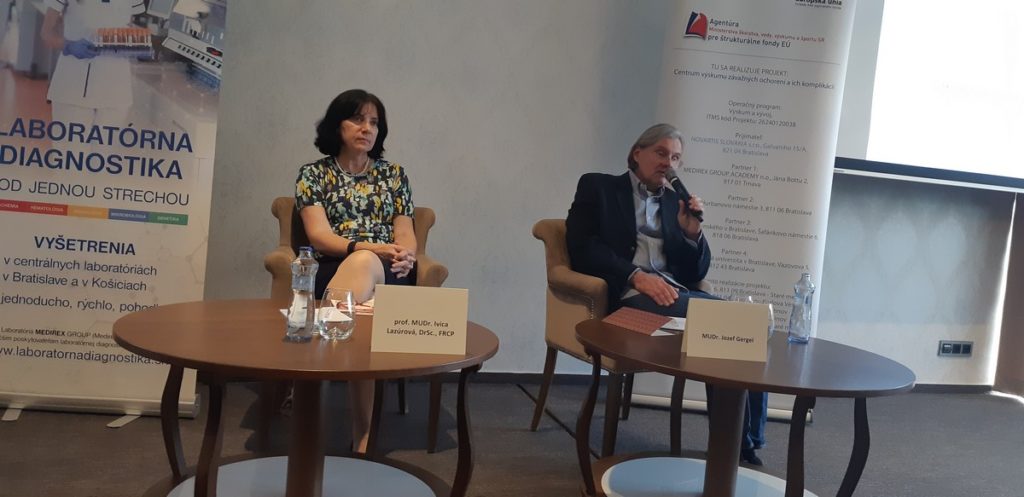Diaret
About the project
MEDIREX GROUP ACADEMY, the non-profit organization is part of a consortium of partners who jointly conduct biomedical research. It focuses on the identification of genetic determinants of severe diseases. In this particular case, the research looks for links between genetic changes and development of retinopathy in diabetic patients. Within the scope of the project, an organizational, personnel and instrumentation infrastructure was established to enable implementation of the planned research tasks. The task of MGA was to create a functional biobank of DNA samples from diabetic patients diagnosed with diabetic retinopathy based on screening diabetological and ophthalmological tests.
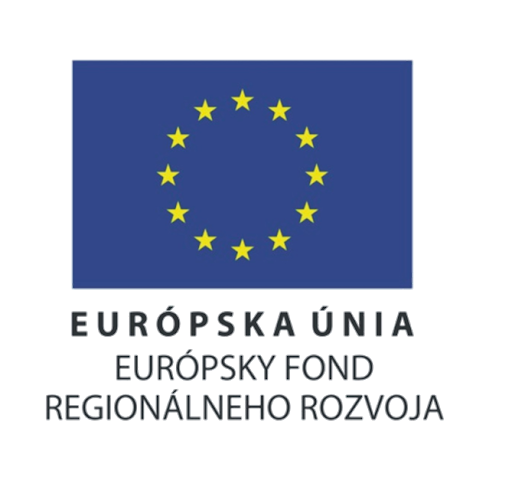

„The project delivered compelling evidence that only a multidisciplinary scientific team of researchers currently has the opportunity to conduct comprehensive biomedical research using the advanced clinical, laboratory and information technology methods. The developed information database of clinical data and an extensive biobank with thousands of biological samples enables plnning of further scientific research projects that have the potential to deliver globally applicable new knowledge in the field of research of severe health complications accompanying diabetes, specifically diabetic retinopathies. Successfully performed analyzes on pilot samples deliver good perspective for the future identification of new biomarkers of these severe complications applicable in routine clinical diagnostic and prognostic processes.“
Lifestyle diseases are the most common cause of premature death in the developed world. Top foreign scientific research institutes work intensively to obtain the most detailed information about the causes of the origin and development of these diseases (also known as diseases of civilisation) and their severe complications. We are currently witnessing an extremely robust development of methods for analyzing the genetic determinants of such diseases and their use in clinical practice. However, the identification of these determinants is linked to their validation, which requires the use of not only biological but also information technology methods and tools. Moreover, a detailed clinical characterization of the disease in patients is a prerequisite. Without the above, the heterogeneity of these diseases currently makes it impossible to consider the identification of new diagnostically, prognostically or therapeutically useful biomarkers. This implies the essential need to carry out research in this area only in a multidisciplinary setting using state-of-the-art laboratory and ICT methods.
Zobraziť celý text
A consortium was established withon the scope of the project that was able to effectively fill a comprehensive clinical information database with detailed phenotypic parameters associated with the course of diabetes and the incidence of diabetic retinopathy. An extensive biobank with samples from more than 4,000 patients was created, enabling basic research in this field. Pilot analyzes were successfully carried out to implement methods of molecular genetics and genomic sequencing to identify genetic determinants that could have prognostic and/or predictive value in diabetic patients in relation to the onset and development of diabetic retinopathy. At the same time, the information technology applied in the field of processing heterogeneous data sources enabled using the obtained health data to support comprehensive management of the patient’s health and create metabolic glucose-insulin models leading to better understanding of the mechanisms of development and prediction of the researched diseases.
Skryť text
Contracts and documents
Contracts
- Zmluva_o_poskytnutí_NFP
- Dodatok_č.1_Zmluvy_o_poskytnutí_NFP
- Dodatok_č.2_Zmluvy_o_poskytnutí_NFP
- Dodatok_č.3_Zmluvy_o_poskytnutí_NFP
- Zobraziť všetky
- Dodatok_č.4_Zmluvy_o_poskytnutí_NFP
- Dodatok_č.5_Zmluvy_o_poskytnutí_NFP
- Dodatok_č.6_Zmluvy_o_poskytnutí_NFP
- Rozhodnutie_Interný_predpis_o_využití_vzoriek
- Štatút
- Dodatok_č.1_Štatútu
Public procurement
Outputs
- Benefits of healthy adipose tissue in the treatment of diabetes
- Brown adipose tissue regulates glucose
- Candidate gene studies of diabetic retinopathy in human
- Cold-Induced Changes in Gene Expression in Brown
- Zobraziť všetky
- Copy Number Variation Methods
- Diabetes
- Diabetes_Cybernetic point of view
- Diabetická retinopatia a jej genetické pozadie
- Different Metabolic Responses of Human Brown
- Doba laboratórna_Newslab
- Epidemiologické charakteristiky pacientov s diabetom melitom_Novartis
- Farmakokinetické modelovanie I.
- From static to dynamic modeling of surfactants micellization
- Gene expression in human brown adipose tissue
- Geneické aspekty diabetickej retinopatie
- Genetické a enviromentálne faktory vplývajúce na rozvoj diabetickej retinopatie
- HSCRP AKO BIOMARKER PRE HNF1A-MODY
- Human Disease Research in the Era of
- Identifikácia metabolických ciest v patogenéze diabetickej retinopatie
- Ileus pri farmakoterapii chronickej hnačky_MGA
- Izolácia a uchovávanie DNA
- Journal of Diabetes Science and Technology
- Komparatívna genómová hybridizácia úvod do metodiky
- Mitochondrial haplogroups in association study with onset and progression of diabetic retinopathy
- Modeling of Association Properties – článok
- Monogenic diabetes old and new approaches to diagnosis
- Odysea čítania DNA
- On the critical evaluation
- Prevalence and epidemiological characteristics of patients with diabetic retinopathy in Slovakia 12-month results
- Prevalencia diabetickej retinopatie na Slovensku_Novartis
- Reversal of Type 1 Diabetes in Mice by Brown Adipose
- Secondary findings in the era of genomic medicine
- Synchronized changes in transcript levels of genes activating cold
- ÚLOHA VASKULÁRNEHO ENDOTELIÁLNEHO
- Využitie proteomiky pri diagnostike a monitoringu ochorení_Lukáčová_MGA

